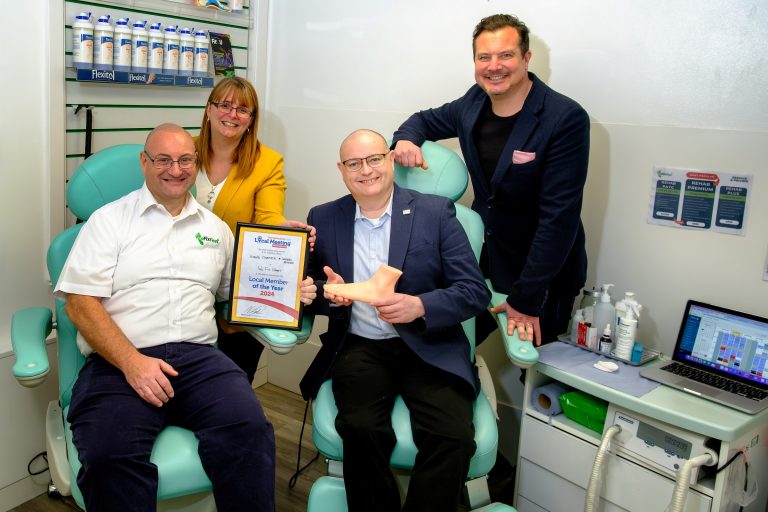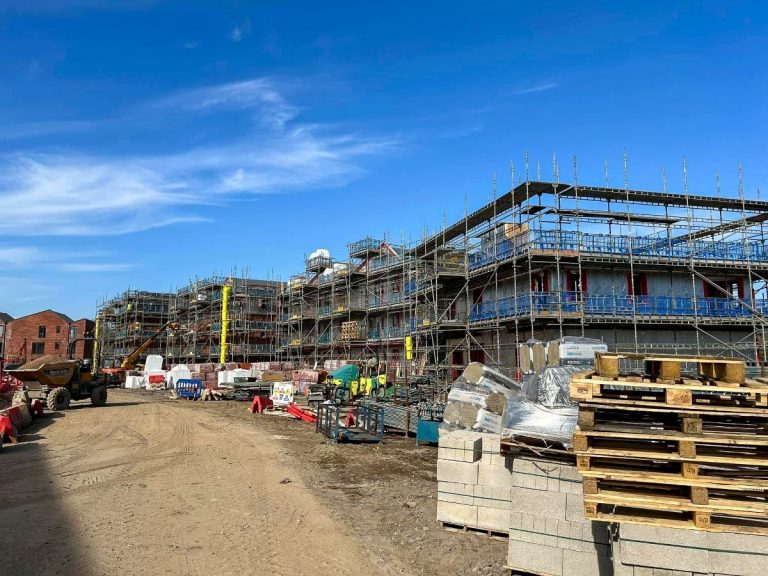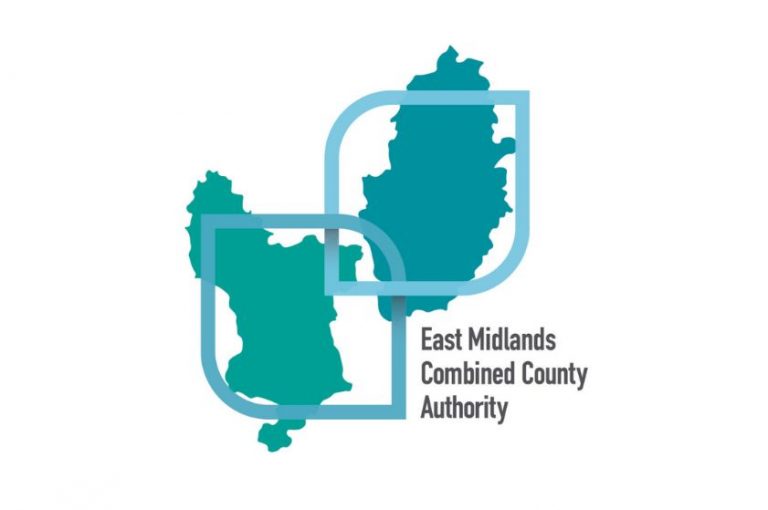February sees much weaker decrease in permanent placements in the Midlands
Pall-Ex announces leadership reshuffle to drive growth
Leicestershire-based logistics firm Pall-Ex has restructured its senior leadership team as it focuses on growth and operational expansion.
Paul Pegg has been appointed managing director of Pall-Ex Logistics, overseeing the network’s warehousing, fulfilment, and owned locations. Previously operations director, Pegg has been with the company since 2018. Michelle Naylor, formerly commercial director, takes on the role of managing director for UK networks.
The changes follow the promotion of former UK managing director Barry Byers to chief operating officer (COO) and confirm that group CEO Kevin Buchanan will continue leading strategic projects.
East Midlands builders’ merchants see year-end sales boost
According to the Builders Merchants Federation (BMF), sales of building materials in the East Midlands increased by 2.1% in Q4 2024 and 9.3% in December, despite an overall annual decline of 2.7%.
The data comes from the BMF’s Building Materials Building Index (BMBI), which tracks 88% of builders’ merchants’ sales using GfK’s point-of-sale data. BMF CEO John Newcomb noted that while national sales fell 4.1% in 2024, the year ended with a 3% rise in December, reflecting improving sentiment in home repair, maintenance, and improvement markets.
BMF East Midlands Regional Chair James Hipkins called the regional growth “encouraging” after a difficult year.
Best feet forward as podiatrist wins Entrepreneur of the Year
An independent podiatrist with clinics in Derbyshire and Nottinghamshire is celebrating after being crowned Entrepreneur of the Year for the area by the business growth specialists, Entrepreneurs Circle. Steve Carter, who runs We Fix Feet Limited from their Ilkeston and Beeston clinics, was presented with the award by local Entrepreneurs Circle Ambassador Greg Simpson, who hosts the local networking events every month on behalf of the national organisation. Carter, together with co-owner Darren Bloore, has grown the business significantly over the last 12 months, hiring new team members (now 7-strong and recruiting for more) as the business grows and seeing record numbers in terms of customers, turnover and profit. “At the end of the day, any success we are experiencing comes down to creating a fantastic customer experience,” explains Carter, who started his first clinic in Ilkeston in 2004. “In simple terms, yes, ‘We Fix Feet’ but there’s a whole lot more to it, whether recovering from a sports injury or managing long-term foot issues, our goal is to treat, improve, and help you move better. It all begins and ends with the customer experience.” Press For Attention PR owner Greg Simpson, who runs the monthly Entrepreneurs Circle local meetings with co-ambassador Claire Taylor, from Creationz Marketing, notes: “I’ve followed what Steve and Darren have been doing over the last 12 months and ultimately it comes down to consistency and implementation with that laser focus on the customer – not just their feet! “The results have followed as a natural consequence of taking the time to focus ON not just IN their business. “Entrepreneurs Circle helps members like Steve and Darren to grow their businesses. Whether the goal is more customers, more sales, more profits or all of the above, Entrepreneurs Circle gives members the tools, training and support to take their business from where it is now, to where they want it to be – then it is down to them to take action, something Steve and Darren do incredibly well.” Co-owner of We Fix Feet, Darren Bloore, adds: “Whilst we use incredibly advanced treatments like Swift Microwave therapy, Class 4 Laser and Focussed Shockwave therapy, trust and accessibility is the key. “As such, we have created packages of support for our clients and really useful guides and resources that ensure that our patients are not only well informed but better able to access our services. “We’ve learned and (crucially) implemented a lot from Entrepreneurs Circle, Greg and Claire and we are proud to be recognised by them as we strive to take We Fix feet another step in the right direction every day.’”
East Midlands businesses face £58m tax hike as rates relief shrinks
According to an analysis by tax firm Ryan, retail, leisure, and hospitality businesses in the East Midlands will pay an extra £57.85 million in business rates from 1 April following a government cut to tax relief.
The business rates discount for eligible firms is set to drop from 75% to 40% for the 2025/26 financial year, with relief reduced from £2.41 billion to £1.38 billion across England. The East Midlands is among the hardest-hit regions, alongside London (£309.65 million) and the South East (£157.85 million).
The tax increase comes as businesses already face rising National Insurance contributions, an increased National Living Wage, and a new packaging levy, all of which take effect in April.
Local councils are expected to collect £27.8 billion in business rates in 2025/26, up 5.7% from the previous year. Two-thirds of the increase is due to the reduced discount for retail, leisure, and hospitality firms.
Business leaders warn that small and independent businesses in the East Midlands could struggle to absorb the extra costs, putting further pressure on a sector already battling inflation and economic uncertainty.
Work resumes on stalled affordable housing scheme
IHG rebrands East Midlands Airport hotel as Crowne Plaza
IHG Hotels & Resorts is rebranding the Best Western Premier Yew Lodge near East Midlands Airport into Crowne Plaza East Midlands Airport. Bookings are open for stays starting 18 April.
Located in Kegworth, 2.5 miles from the airport, the rebranded hotel will feature 114 guest rooms, a Marco Pierre White-branded restaurant, a fitness centre, and 17 meeting rooms aimed at business and leisure travellers.
The move is part of IHG’s broader UK and Ireland expansion, which includes over 900 new rooms across multiple properties. Recent openings include voco London Marylebone and the UK’s first Garner-branded hotel in Preston Samlesbury.
£3.288m earmarked to boost economic growth in Derby
UK businesses urge government to fix outdated infrastructure
The British Chambers of Commerce (BCC) is urging the UK government to address critical infrastructure issues to support economic growth. A new BCC report calls for road and rail capacity investment, regional transport projects, and improved grid connectivity. It also stresses the need for long-term policy stability and better planning capacity to restore business confidence, which was shaken by the cancellation of HS2’s later stages.
The report highlights widespread concerns among business leaders. Two-thirds (66%) feel their input is ignored in local infrastructure decisions, rising to 81% for national projects. Additionally, 62% say local bus and tram networks are inadequate, affecting workers’ commuting ability.
The BCC has launched an initiative to train and place 100 additional planners in local authorities to tackle planning delays. The report also urges the government to include business interests in the upcoming Infrastructure and Planning Bill to ensure a coordinated national strategy.
The BCC warns that uncertainty around major infrastructure projects hinders private sector investment and that reform is needed to create a stable environment for long-term economic development.










